Tomorrow is 2019! Happy New Year’s Eve! While I have the opposite of a wild night planned, I think back to how I rang in 2018 a year ago… and I remembered that I went to bed at 9pm in my parents’ house with my 18-month-old who wouldn’t stop climbing out of his crib. At some point I ended up on the floor. I think we also had to wake up for a stupidly early flight. So this year really can’t be worse than that… especially since I am finishing! And! Posting! The Best Books I Read in 2018! Even though I have no time or energy to read anything of enough literary quality to end up on a Best of the Year post, it’s still a wonderful time of year.
Longtime readers (do I even have another kind of reader at this point? Hi Mom! Hi Dad!) know the drill: these are my favorite reads of the year, regardless of audience, publication date, or literary merit. They are listed in order. I really did love them all – while most of the 132 books I read this year were somewhat forgettable, I really do have a tough time narrowing down the top 25 or so. Please add them to your 2019 To-Read lists. Please forgive me for incomplete and unoriginal sentences below. I have a 5 week old baby and a 2.5 year old in my house and we have all been here together for 10 consecutive days and I guess we all have to live together forever now. Good thing everyone likes to read.
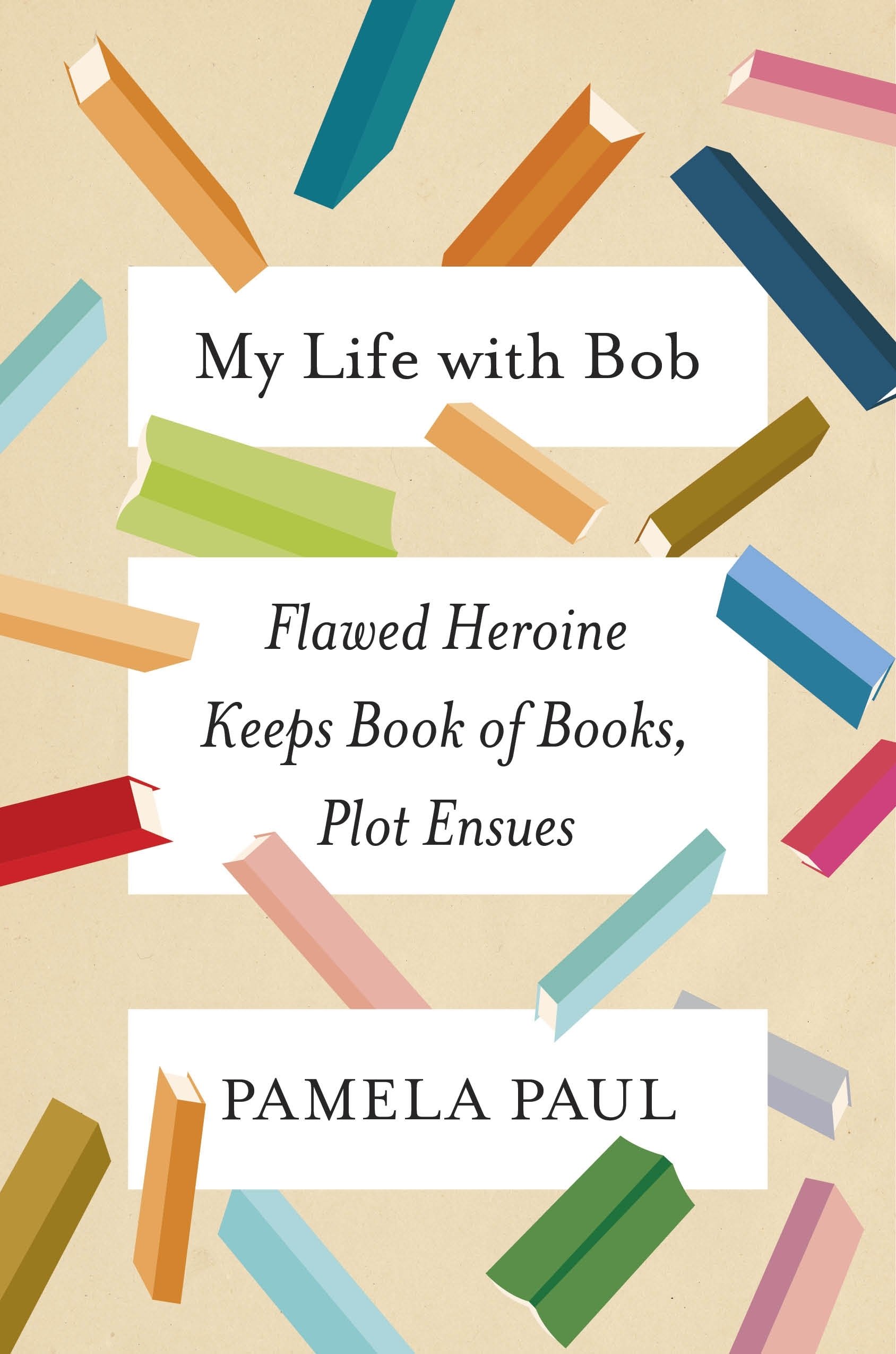
10. My Life with Bob: Flawed Heroine Keeps Book of Books, Plot Ensues by Pamela Paul
Pamela Paul is the editor of the New York Times Book Review. Before that, she was a fairly normal young woman with one of those useless English degrees and a lifelong love of reading. As a fellow reader who considers charting and tracking her own reading life to be a worthwhile hobby, I was entranced by Paul’s essay about her Book of Books – a notebook where she documented her reading life starting when she was a teen. This memoir follows her fairly normal young adult and adulthood, with attention paid to the books and reading experiences that shaped her. Nothing too flashy here, but I found her life story to be so quietly engaging that I couldn’t put it down.
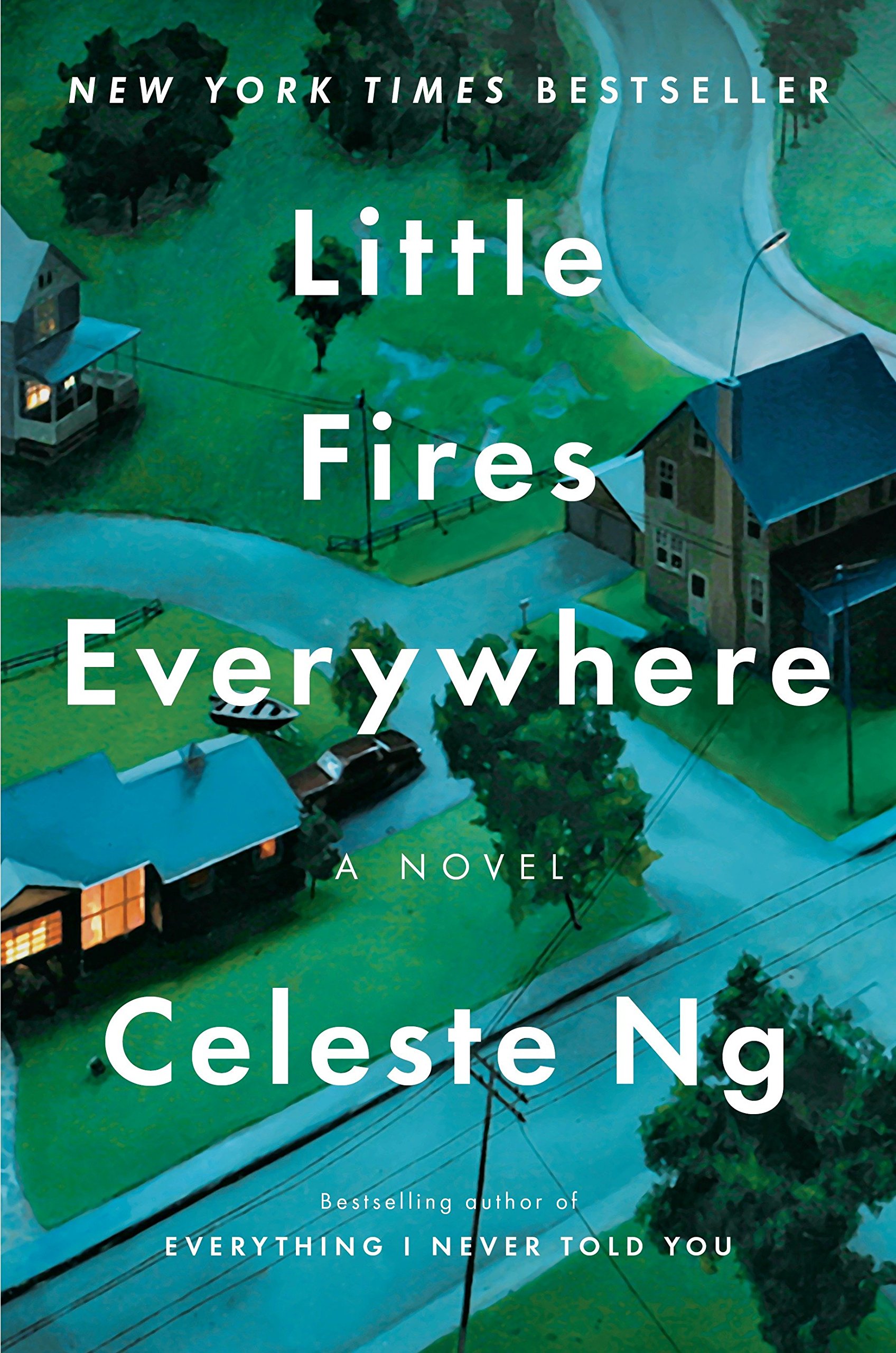
9. Little Fires Everywhere by Celeste Ng
Did you already read this book, when e.v.e.r.y.b.o.d.y. was reading it, in 2017? Well, if you didn’t, I can tell you it was still a very good read in 2018, and will probably be a good read in 2019, too. And there’s good news! I bet your library’s holds list have finally died down! Set in an orderly Ohio suburb, this story is split between three very different families – the Richardsons, who have deep roots in the community but also four teenagers who are up to all sorts of behaviors their proper mother doesn’t want to know about; the Warrens, a single mother and teen daughter who rent a condo from the Richardson; a single, immigrant mother who must work full time to support herself and her infant daughter, and in the process has her daughter taken into state custody; and Mia Warren – an enigmatic artist with a murky past – and her teenaged daughter, who unintentionally weave between the stable suburban families. I like domestic literary fiction, and I like adult books starring teenagers, so I agree with the masses – a must read of whatever year it happens to be when you read this!
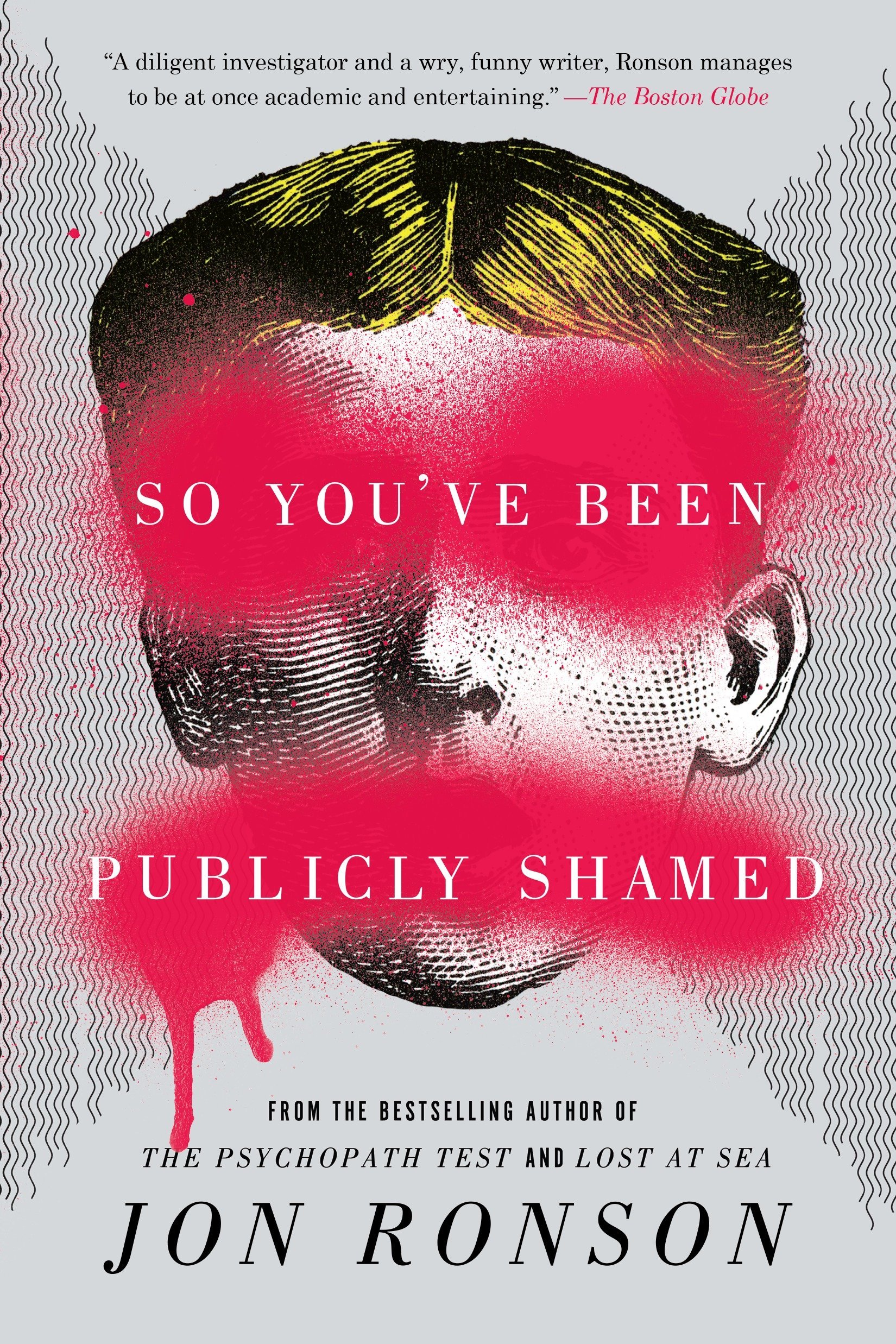
8. So You’ve Been Publicly Shamed by Jon Ronson
I heard about this book for years – so many rave reviews, plenty from people whose reading tastes I admire – but I never thought I’d want to read it. A book about people behaving badly on the Internet? I actually spend a decent amount of my time and energy trying to *avoid* people behaving badly on the Internet, so no thanks. Then I read Leila Sales’s If You Don’t Have Anything Nice to Say for a pro book review; it’s a realistic YA book about a girl who behaves badly on the Internet and the backlash that ensues, very clearly influenced by Ronson’s book , so I thought I might be a pro-pro reviewer and take a chance on So You’ve Been Publicly Shamed (read: Jessica wanted to procrastinate, so she found a somewhat acceptable avenue to avoid doing her work!) I was not any more interested in the subject than I ever have been, but DAMN Jon Ronson! I was not only sucked in, but entirely fascinated, and I give all the credit to Ronson’s writing: he’s a talented storyteller who also takes some unexpected narrative risks. So add my rave review to the mix, and I’ll add Ronson to my Definitely Check Out Their Next Book, No Matter What It’s About list.
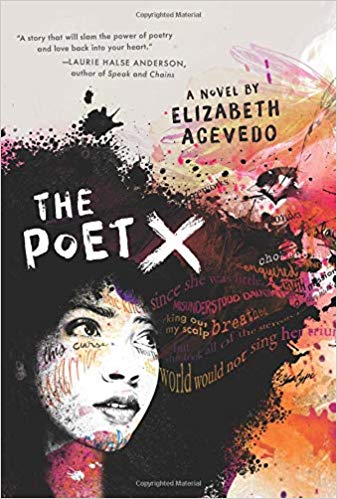
7. The Poet X by Elizabeth Acevedo
In August, when I decided to play a little 2018 YA/MG catch up, The Poet X was my first choice. Why? Because it was short! And written in verse, so it reads even shorter! It also won the Boston Globe-Horn Book Award for fiction, so I would get (imaginary, meaningless) Literary Merit points. But external factors aside, I was so pleased with this book. Acevedo portrayed her main character, Xiomara, as a complex, sympathetic teen with a unique set of social challenges – she’s trying hard to balance her family’s staunch religiosity with her earnest desires for independence: to date, maybe have sex, write and perform slam poetry, to challenge some aspects of Catholicism. This felt like the best of old-school YA realism – a personal coming of age story driven by character and not melodrama – but with a modern perspective on race, class, and gender.
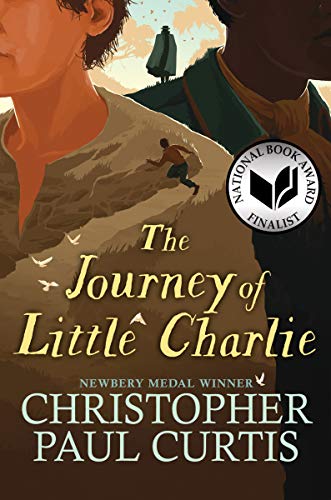
6. The Journey of Little Charlie by Christopher Paul Curtis
Another of my earnest Catch Up On The Best of 2018 YA/MG reads makes the list! Isn’t it great when you agree with the critics? I knew nothing about the plot or setting when I started reading, so it did take me a little time to get settled into the story, but the narrator’s voice drew me in right away. Little Charlie – the oversized twelve-year-old son of poor sharecroppers – starts the book extremely down on his luck: he witnesses his father dying of a freak accident, then finds out his father owes money to a nearby plantation owner; he and his mother are grieving and wondering how they will keep up with their work and make money when a goon arrives to collect on his father’s debt. The goon (“Cap’n”) convinces Charlie to join him on a journey to collect on someone else’s debt as a payment for his own, and a cross-country, international, consciousness-raising adventure ensues. I thought this was a perfectly middle-grade sized read – just meaty enough for a 4th-6th grader but without anything extra – and oh gosh, Little Charlie is just one of those endearingly naive but earnest narrators that you (aka, adult readers, probably; pregnant/hormonal readers, definitely) just want to hug.
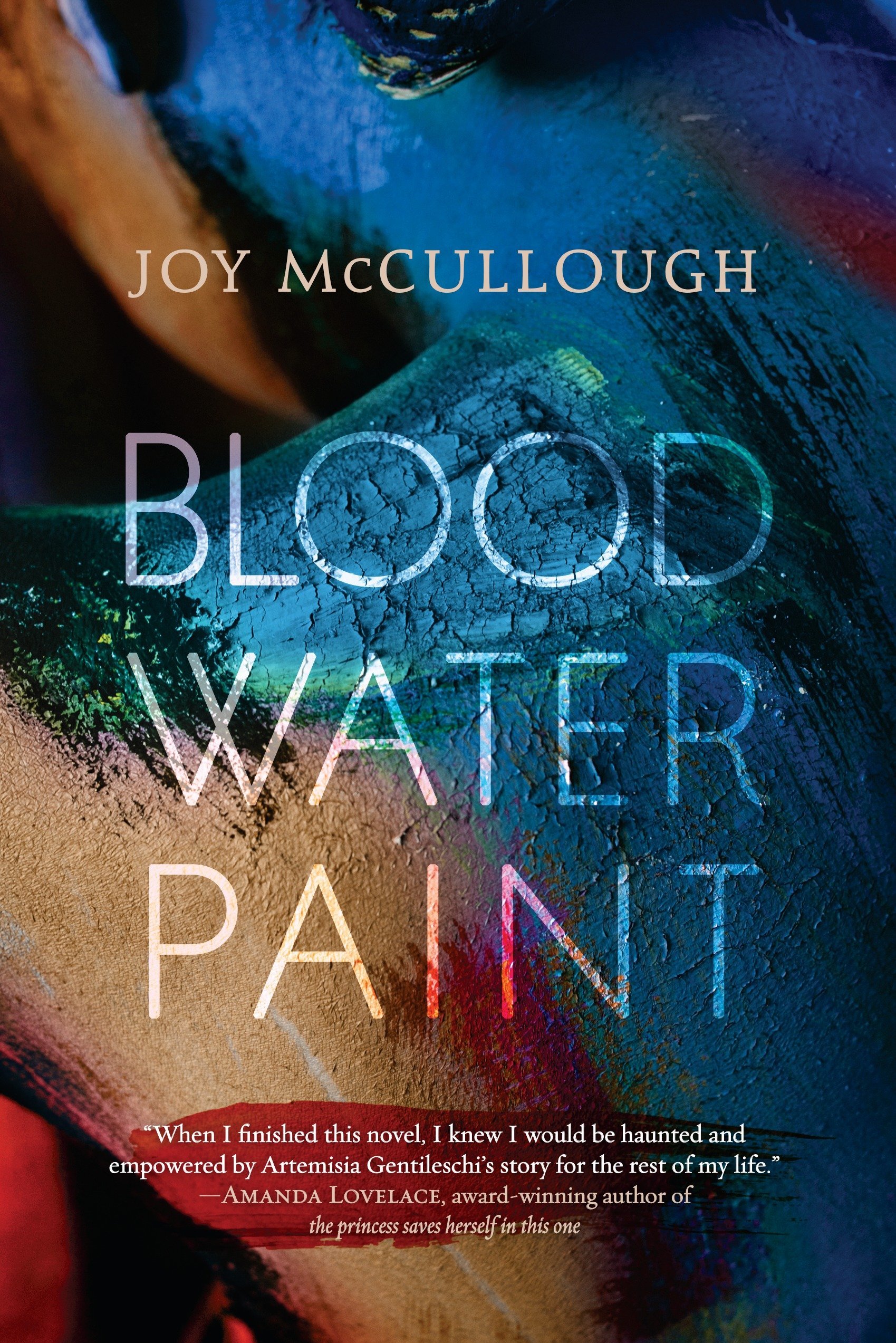
5. Blood Water Paint by Joy McCullough
A third 2018 YA/MG book – another (mostly) verse novel, interestingly enough. Also, another historical: this time, way more historical, going back to the 1600s in Italy, and based on actual people and actual events! The protagonist, Artemesia Gentileschi, is a seventeen-year-old living in Rome with her widower artist father. Out of financial necessity, her father trained her to paint, and at some point she became so talented he was better off handing his commissions to her – while signing his own name to them, of course. Artemesia is pissed off about this. She desperately wants to make her own name as an artist, and is passionate about painting women with the sensitivity and realism that the male artists of her time just can’t handle. Then, she comes across a successful artist who wants to tutor her – she’s elated… until her tutor’s untoward behavior threatens to destroy her and her family. Is this a work of relatively heavy-handed proto-feminist comeuppance? Yeah, probably. But Artemesia’s struggle to be honored for her own talents – and believed against the words of a more powerful man – reads like a story that could be making today’s headlines. This is a fairly devastating but extremely powerful read.
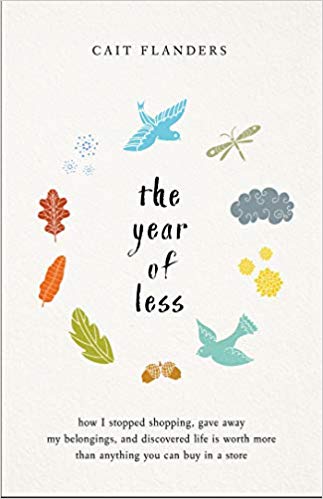
4. The Year of Less: How I Stopped Shopping, Gave Away My Belongings, and Discovered Life if Worth More Than Anything You Can Buy in the Store by Cait Flanders
Finding this book felt like a bit of divine intervention: I chanced upon a personal finance blog that, upon investigation, didn’t really seem like a personal finance blog. Then I forgot the URL, remembering only that it was the author’s name dot com. I remembered it (caitflanders.com, RIP) and was like “wow, this is better than a personal finance blog…” and then a few weeks later I heard about this book and put all of these connections together. I’m a bit of a personal finance hobbyist, but I do find many blogs and books on the subject to be repetitive, polemic, and fixated on one-size-fits all advice. How we deal with money is… well.. personal; Flanders’s memoir is the first personal finance book I’ve read that fully embraces that intersection. The premise is a little stunt-memoir-y – Flanders writes about her “year of no spending,” – but since she’s writing about her efforts to not do something, what she ends up writing about is the life she lives instead – and what perspective that experience brings to the life she lived before. This was a quietly endearing – and inspiring – read for me this year.
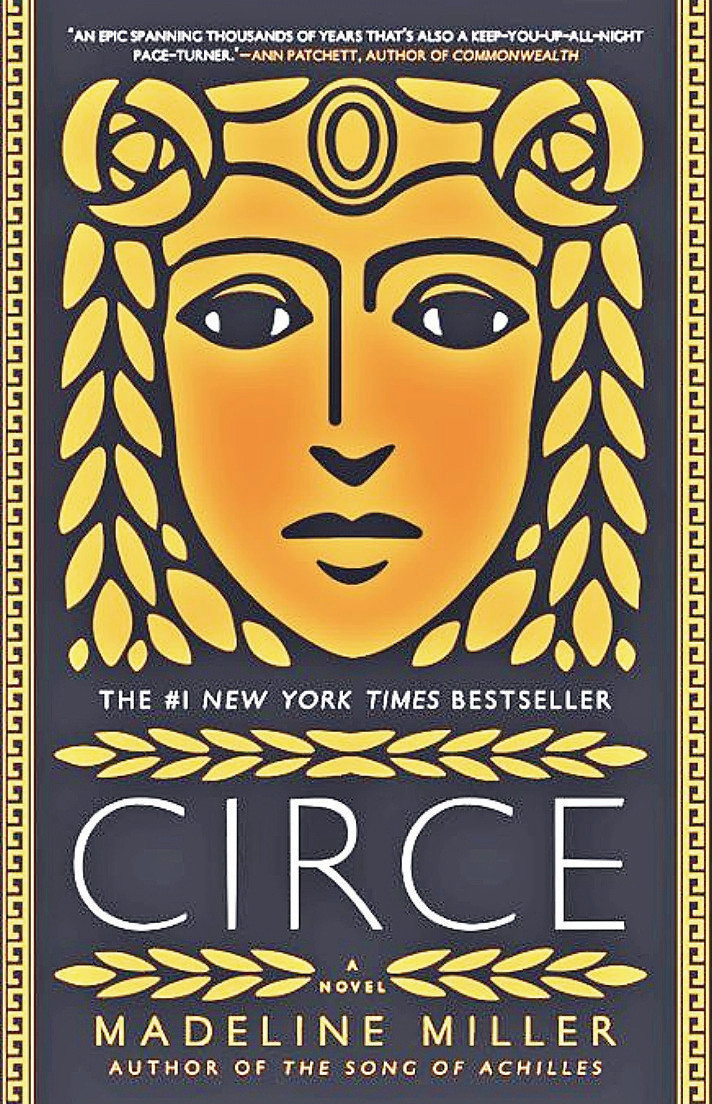
3. Circe by Madeline Miller
Unsurprising confession: everything I know about mythology I learned from video games and the episodes of Wishbone that retold The Odyssey and the story of Hercules. But even though I could only barely keep track of which god was related to which demigod, I was somehow totally into Madeline Miller’s latest work of… mythological fiction? I missed growing up in the Percy Jackson crazy by a few years (*cough* more like ten years *cough*), so I’m a little out of the loop; also, I don’t know exactly what aspects of this story Miller gathered from mythology and what is her own making. But previous mythological knowledge proved unnecessary, for me: I was taken in by the strange, petty culture of gods and goddesses Miller crafted, and by Circe’s rich characterization. She’s a lesser goddess, an unfavored child of the sun god, Helios – who spends most of her adult living alone, banished somewhat unfairly to a remote island; she’s also a singular female who, without much support from family or friends, finds her own power and self-worth.
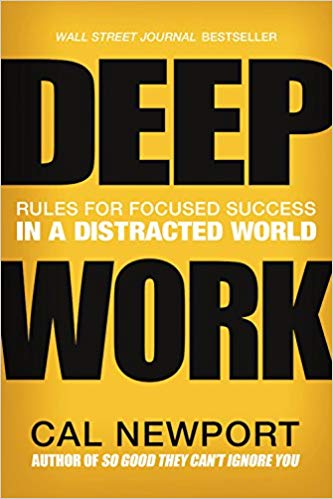
2. Deep Work: Rules for Focused Success in a Distracted World by Cal Newport
I haven’t written much this year, but when I did, I wrote about this book . It falls under the category of nonfiction that isn’t necessarily more artful, profound, or revolutionary than anything else I read all year; instead, Deep Work simply explained a concept that I needed to understand at this point in my life, and it did so with simple engaging urgency. This is the book I thought about the most all year. While I took Newport’s message – do everything you can to do the kind of work that takes all of your concentration – to heart, putting it to practice has been a little more challenging. It’s no surprise that this is yet another self-help-y/productivity book that doesn’t mention caring for toddlers, pregnancy nausea, or breastfeeding… or chronic pain, mental illness, the economic/personal necessity of working multiple jobs, or any other everyday life situations that myself and people I know might find to be significant barriers to ever achieving Deep Work. But for me, I’ve found his ideas to serve as a gentle beacon that reminds me of what’s important: reading, writing, and caring for myself and my family, aka doing the things that only I can do. Doing that work with intention and as much brain power as I can muster is never going to be a bad idea, and the more time I spend on it the better. I definitely want to re-read this in 2019, and am looking forward to his next book, which looks like a good, old fashioned anti-technology manifesto.
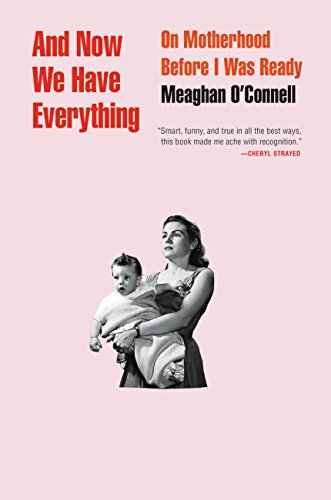
1. And Now We Have Everything: On Motherhood Before I Was Ready by Meaghan O’Connell
I have read a great many books about pregnancy, childbirth, and motherhood over the years. In my experience, they tend to run in two directions: the slightly crunchy, softly-lit, “isn’t motherhood just GRAND” kind of book, or the Hey, Parenting sure SUCKS so you should feel totally empowered to complain about it – and sure, have another glass of wine. I don’t necessarily have a *problem* with either of these narratives… but neither of them have really spoken to me, either before I had kids or after. While my own experience of motherhood hasn’t been quite the same as O’Connell’s (she is a little more on the PARENTING SUCKS side of the spectrum than I am) there was just so, so much that she got right about the broader experience of the culture of motherhood RIGHT NOW. Millennial Motherhood, maybe? If that wasn’t so annoying? Of being a young, creative, hustling woman who also might want to procreate, even though it’s probably not a good idea and you have no good role models and nobody even TALKS about it. Of the bizarre, sourceless pressure put upon mothers to do everything right, before, during, and after birth that just permeates even your most private moments. Combine that with a fantastically wry voice and I’m-actually-laughing-out-loud-and-not-just-using-it-as-a-textual-interjection humor, and I’m ready to pick this one up again. For the third time. There’s a lot more I’m forgetting to say here, but it’s 8:15 p.m. and my 2.5 year old is at least somewhat silent in his hopefully dark bedroom and my five week old is waking herself up and it’s New Year’s Eve so I should probably at least see if my husband wants to share a glass of wine before I put on my flannel pajamas, so I’m just going to go ahead and push publish, and I’ll see you in 2019!